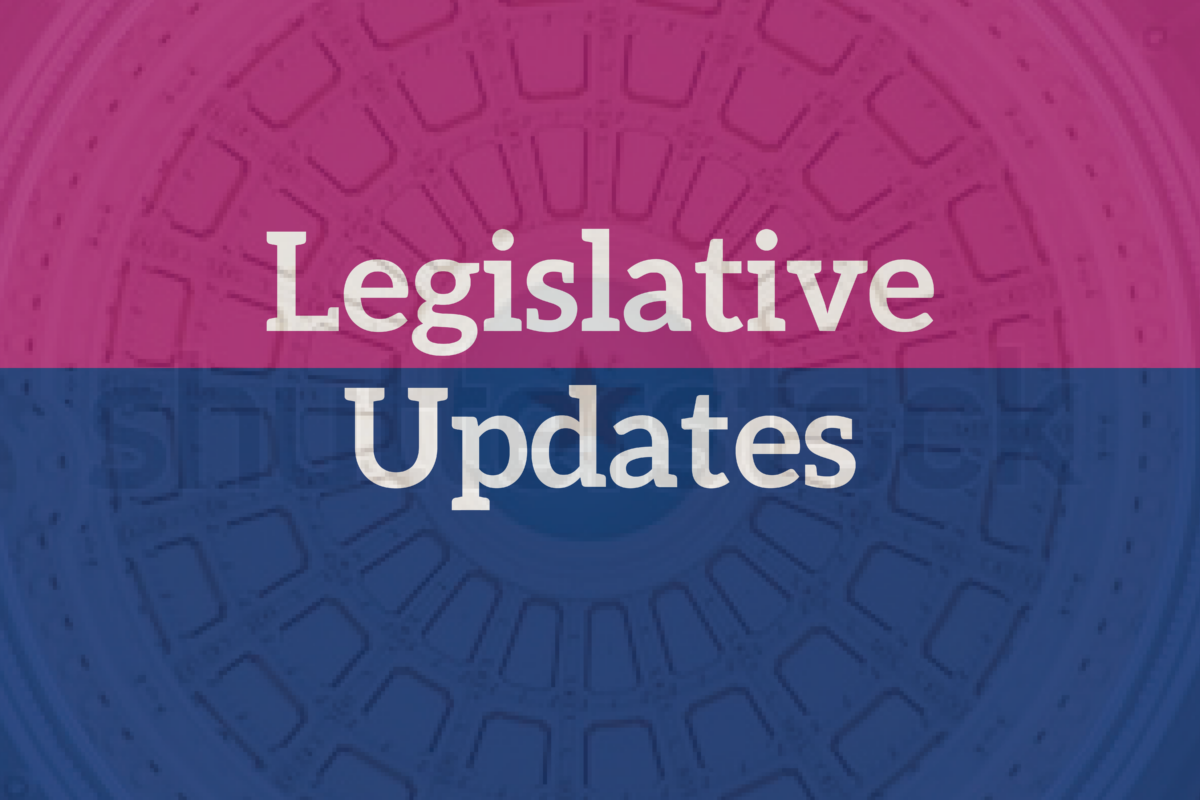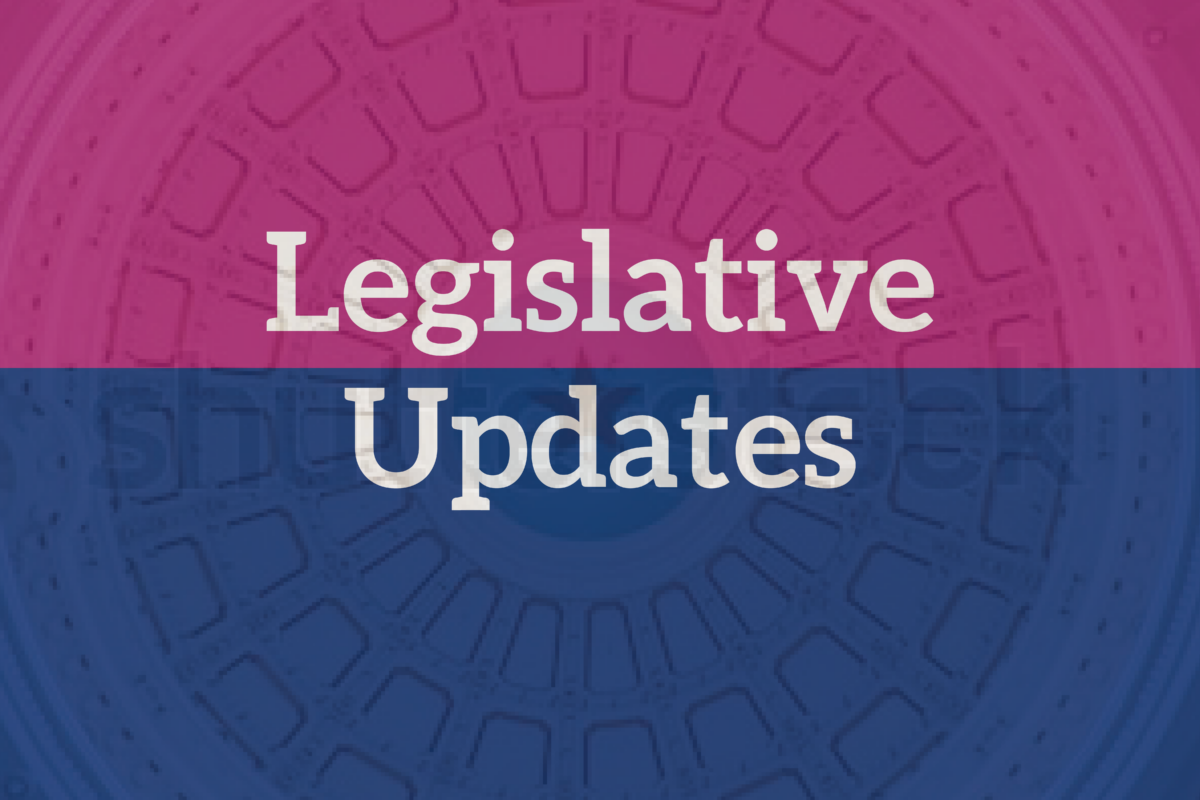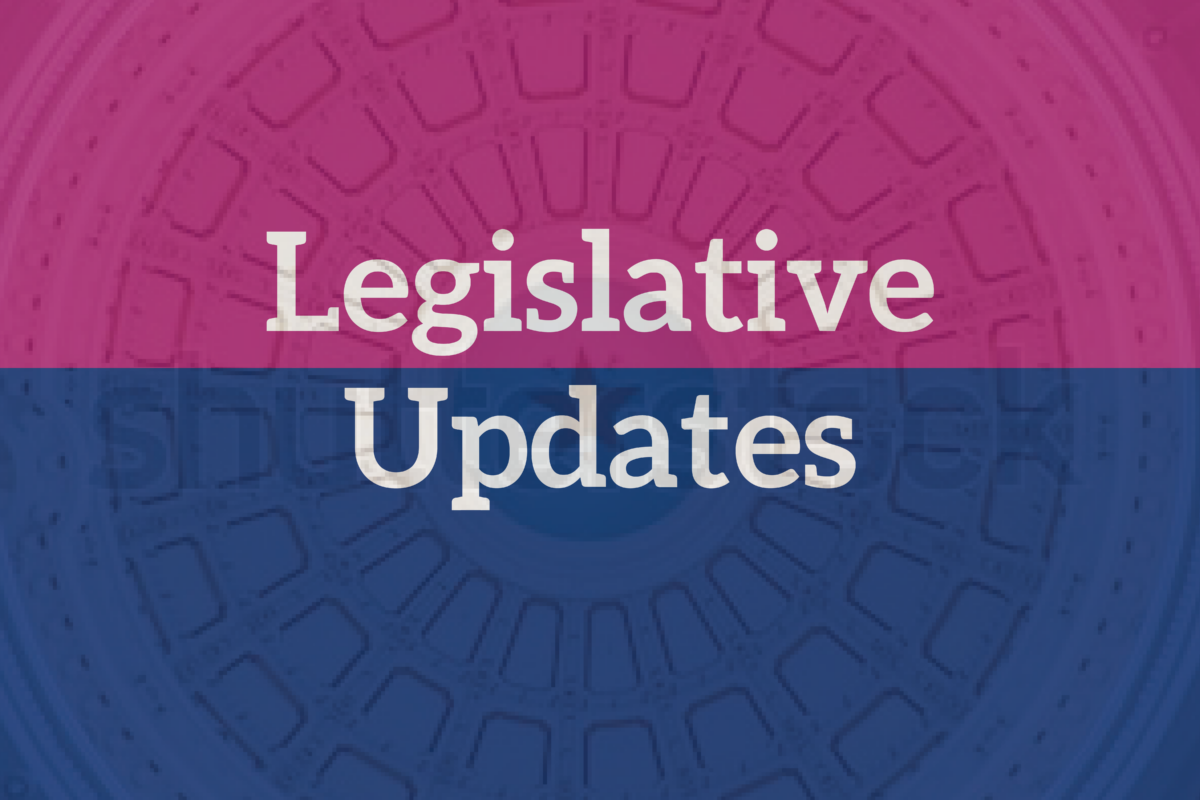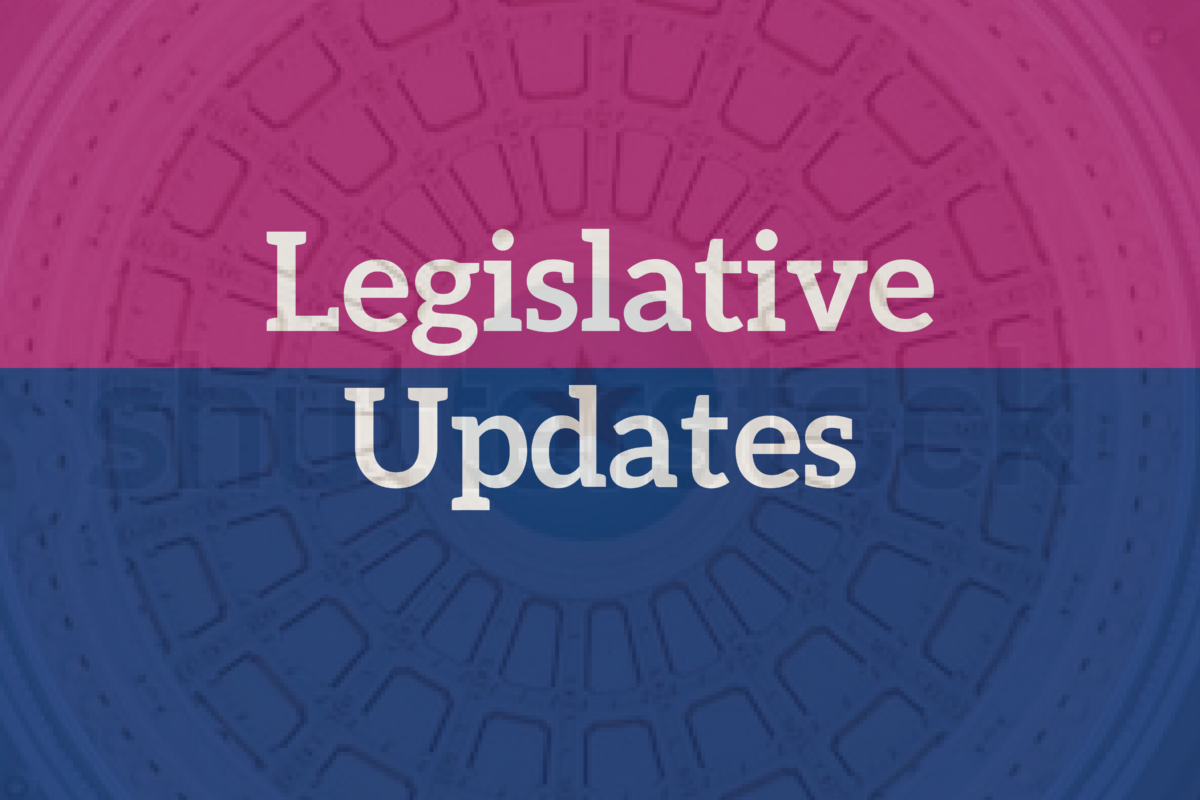
In this issue:
Upcoming Hearings for the week of May 20
Upcoming Events
___________________________________________________________________________________________
State Updates
On Their Way to the Governor’s Desk
With a little more than a week left in the 86th Legislative Session, bills are making their way to the Governor’s desk for his signature. Here are just a few that impact the delivery of health care for the communities we serve.
HB 125 – Prohibits the state from publishing the home address of licensed mental health professionals online.
HB 2225 – requires birthing facilities to inform parents of deaf and hard of hearing infants about public resources available to them, including early childhood intervention (ECI) services.
SB 999 – develops a state plan to identify best practices related to the awareness, treatment and prevention of Alzheimer's disease.
SB 1142 – allows the Travis County Healthcare District (Central Health) to employ physicians to better provide medical care for indigent and needy residents.
SB 1378 – requires institutions of higher education planning to increase enrollment to medical degree programs to submit a specific plan to increase the number of corresponding first-year residency positions.
SB 2132 – provides women auto-enrolled into the state’s Healthy Texas Women (HTW) program with information about the program and a list of health care providers in the woman's geographic area.
Legislature Approves Extension of Cancer Prevention & Research Institute of Texas
Approximately half of all cancers can be prevented through evidence-based prevention intervention services. Established in 2009, the Cancer Prevention and Research Institute of Texas (CPRIT) provides an infrastructure that supports and enhances the networks delivering cancer prevention services and conducting groundbreaking research throughout the state. On May 10, the Texas Senate passed House Bill 39 and House Joint Resolution 12 which will extend the CPRIT program and ask voters to amend the Texas Constitution to authorize $3 billion in general obligation bonds.
CPRITs investment in prevention grants makes it possible for the state to fully capitalize on its longstanding investment in Texas’ fight against cancer. Since 2010, CPRIT grantees have provided nearly 251,000 prevention vaccinations, 230,000 tobacco cessation services and 1,300,000 screening and diagnostics for breast, cervical, HPV-related, liver and colorectal cancers. Additionally, CPRIT has invested nearly 11 percent of its research portfolio – twice the national average – toward more than 150 cancer research projects aimed at improving survival rates and preventing children and adolescents from developing cancer. Methodist Healthcare Ministries worked with the American Cancer Society this legislative session to secure the reauthorization of CPRIT and ensure Texans receive lifesaving prevention clinical services and expedite innovation in childhood cancer research.
House Extends Health Care Coverage for Medicaid Mothers
The 2018 Texas Maternal Mortality and Morbidity Task Force Biennial Report found that 56 percent of maternal deaths between 2012 and 2015 occurred after 60 days postpartum. The most common contributing factor to maternal mortality included underlying medical conditions, such as diabetes and heart disease, due to the lack of access to quality care during the year after pregnancy and throughout the interconception period. On May 10, the Texas House voted 87-43 to pass House Bill 744 by Representative Toni Rose, which adopts the Task Force’s number one recommendation – to extend access to health care coverage from 60 days to 12 months following delivery.
The current 60-day postpartum coverage provided by maternal Medicaid does not allow women time to secure postpartum outpatient care and ensure access to interconception care services. Enabling eligible women to access and maintain continuous healthcare coverage is essential to help women identify and address health issues early on. HB 744 aims at improving the health of women, facilitate continuity of care, enable effective care transitions and promote safe birth spacing. Methodist Healthcare Ministries supports extending Medicaid coverage for women up to 12 months postpartum to ensure continuity of care, allowing women to receive treatment services for conditions such as substance use, diabetes and hypertension. House Bill 744 moves to the Senate where it awaits referral to committee and further action.
Bill Addressing Adverse Childhood Experiences Moves Forward
Texas ranks 30th in the nation for the number of children who have experienced two or more childhood traumas. Experiencing multiple stressful or traumatic events during childhood, known as adverse childhood experiences (ACEs), have shown to have profound effects on an individual’s cognitive, social and biological development. With nearly 24 percent of Texas children having experienced multiple ACEs, the Texas House voted 131-14 in favor of House Bill 4183 by Representative Tan Parker (R- Flower Mound), directing the state to develop a five-year strategic plan to address the social, health and economic impacts of adverse childhood experiences.
Studies have found that as the number of ACEs increases so do the risks of poor physical health, mental health and behavioral health outcomes. Using a public health framework, HB 4183 develops a strategic plan that identifies best practices and promotes the development of early intervention and prevention strategies to mitigate the impact of ACEs. Methodist Health Ministries supports empowering struggling families, promoting safe relationships and environments and building resiliency in children and families. On Wednesday, May 15, HB 4183 was heard by the Senate Committee on Health and Human Services and was left pending, awaiting further action.
Bill Promotes Best Practices for Physical Activity in Schools
Texas has the seventh-highest obesity rate in the country for youths between the ages of 10 and 17, with more than 600,000 youths considered obese. Children who are overweight or obese are five times more likely to be overweight or obese as adults and have an increased likelihood of developing chronic diseases, including diabetes and heart disease. On May 9, the Senate Committee on Education heard House Bill 455 by Representative Alma Allen (D-Houston), which provides guidance to school districts on adequate recess time while maximizing the effectiveness of outdoor physical activity.
Daily recess is shown to have health, social and academic benefits for students. Currently, the state does not provide school districts with specific guidance as to the best-practices for constructive physical activity and outdoor play time. HB 455 directs the Texas School Health Advisory Committee to develop age-appropriate model recess policies that encourage constructive outdoor play time. Methodist Healthcare Ministries provided written testimony to the Senate Education Committee in support of preventing obesity early in a child’s life to improve their health and productivity into adulthood. The bill was left pending in committee and awaits further action.
Senate Passes Medical Transportation Pilot Program for New Mothers
For many mothers in rural and urban areas, transportation to medical appointments is a significant barrier resulting in forgone health care or missed appointments. Missed appointments delay care which is associated with disrupted patient care, increased medical costs and increased emergency room visits. On Thursday, May 16, the Texas Senate voted overwhelmingly in support of House Bill 25 by Representative Mary Gonzalez (D-Clint), which creates a pilot program allowing pregnant and postpartum women to ride with their children to their pregnancy-related medical appointments under the Medicaid medical transportation program.
Currently, state and federal funds are not allowed to be used to transport a person who is not a Medicaid beneficiary to a medical appointment. This results in mothers having to travel without their children if they are going to a prenatal or postpartum appointment. HB 25 would allow health plans to leverage existing partnerships with ridesharing services to arrange for transportation for mothers and their children. The pilot program seeks to determine if the program reduces pregnancy-related complications, improves access to medical care and decreases missed appointments. Methodist Healthcare Ministries supported HB 25 as it worked through the House and Senate committee process. The bill, as amended in the Senate, heads back to the House for concurrence.
Upcoming Hearings for the week of May 20
Upcoming Events
Monday, May 27 – Last day of the 86th Legislative Session (Sine Die)
For more information on health care research, policy or advocacy, please contact Chris Yanas at cyanas@mhm.org.
Back to Top
 Maybe it all started with a love of Legos? Or maybe it was Lincoln Logs? Or creating an indoor tent and pillow fort with every clean sheet and pillowcase I could find in my house (sorry Mom!)? In short, the inclination to build things starts in childhood. As adults, we start building in other ways. Beyond construction, we develop systemic plans, and we see opportunities to build and work with intention to expand or increase something – make something bolder. Building something bolder–a perfect way to describe Methodist Healthcare Ministries’ new venture with the BUILD Health Challenge.
Maybe it all started with a love of Legos? Or maybe it was Lincoln Logs? Or creating an indoor tent and pillow fort with every clean sheet and pillowcase I could find in my house (sorry Mom!)? In short, the inclination to build things starts in childhood. As adults, we start building in other ways. Beyond construction, we develop systemic plans, and we see opportunities to build and work with intention to expand or increase something – make something bolder. Building something bolder–a perfect way to describe Methodist Healthcare Ministries’ new venture with the BUILD Health Challenge.



 Methodist Healthcare Ministries of South Texas, Inc.’s Senior Vice President of Dental Services, Dr. Philip Brown, has been inducted as a Fellow of the International College of Dentists (ICD). Dr. Brown was honored for his extraordinary service and leadership at the ICD’s 85thAnnual Convocation, held in San Francisco, California, Sept. 6.
Methodist Healthcare Ministries of South Texas, Inc.’s Senior Vice President of Dental Services, Dr. Philip Brown, has been inducted as a Fellow of the International College of Dentists (ICD). Dr. Brown was honored for his extraordinary service and leadership at the ICD’s 85thAnnual Convocation, held in San Francisco, California, Sept. 6.











